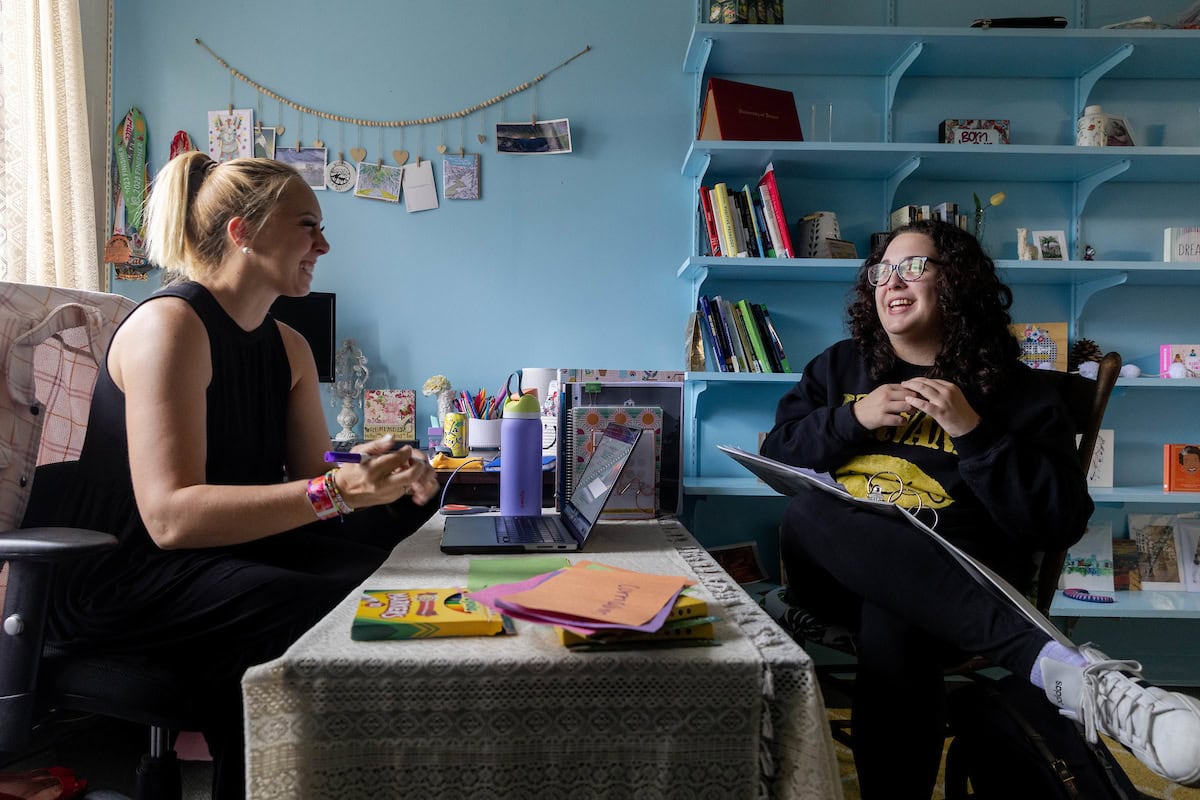Randolph professor, student exploring culturally relevant teaching strategies
Randolph’s Summer Research Program is a competitive, paid program that gives students the chance to work closely with faculty members conducting research in their areas of interest. This story is part of an ongoing series featuring the work being done on campus this summer.

Education professor Taryn Robertson, left, and Madeline Dearie ’25 are doing research together this summer on culturally relevant pedagogy.
Culturally relevant pedagogy—instruction that takes students’ cultural differences into account—is at the heart of education professor Taryn Robertson’s summer research.
“Students may present as being from the same cultural or socioeconomic backgrounds, but the ways in which they’re raised and the fundamental things that go on in their households are very unique to every individual student,” said Robertson, who is working alongside elementary education major Madeline Dearie ’25.
“As educators, it’s up to us to utilize those things in order to activate prior knowledge so they can attach new learning to preexisting information,” she added. “It creates a very inclusive environment for students.”
Culturally relevant teaching strategies can vary, from providing students with individual choices in how they demonstrate their understanding of a concept to something as simple as a classroom book library.
“As a teacher building a library for your class, it’s important to make it diverse,” Dearie explained. “We all relate to different things, and students are usually more interested in something that relates to them.”
Previous research shows that culturally relevant pedagogy can improve students’ academic achievements, but there is little research identifying which specific strategies provide the largest impact.
“There is such a level of care and understanding that has to go on between the educator and the student in order for that reciprocal relationship to happen,” Robertson said.
She and Dearie began the summer interviewing Lynchburg City Schools teachers from a variety of grade levels, subject areas, and length of service.
Teachers were asked about their experiences with and understanding of culturally relevant pedagogy, as well as any barriers they might face when implementing it in their classrooms.
“Culturally relevant pedagogy is such an important thing, especially in a school district as diverse as Lynchburg City Schools,” Robertson said. “But a lot of teachers are extremely overworked. They have 10,000 things on their plate. They’re not always in a position to try new strategies. And the sociocultural context of the world right now doesn’t exactly invite diversity in our classrooms.”
As they compile their data, Robertson and Dearie have also challenged themselves to create an artistic representation of their findings in addition to writing a traditional paper.
“At the end of the day, we are here to support teachers, and that’s partially what this project is allowing us to do,” Robertson said. “We’re just trying to take the temperature of the district, where there are so many great teachers doing phenomenal things. We want to really talk to them and understand what barriers they’re experiencing when they try to bring more diversity and inclusivity into their classrooms, and what we can do to help.”
Tags: Class of 2025, education, faculty student research, SRP 2024, summer research, summer research 2024, Taryn Robertson
